Since Trump won the presidency, Mar-a-Lago was always a national security red flag
- Oops!Something went wrong.Please try again later.
PALM BEACH — A security gathering in a dining hall. Admonitions about torn and stored papers. A foreign national arrested. A vehicle that sped through Secret Service checkpoints.
Isolated, unconnected happenings that highlighted a hyper-sensitivity to risks presented by a presidency, carried out in a location that doubled as residence and private business during Donald Trump's single term in office. An ever-present and varying set of vulnerabilities at the Southern White House never before faced by those charged with protecting an American president, or faced by the presidency itself.
The sensitive nature of that reality continued after January 2021, and exploded in the U.S. body politic Monday in an unprecedented, and shocking, FBI search of the former president's Palm Beach club. The action sparked a firestorm of denunciations, especially from Florida Republicans and Trump supporters, who likened it to "banana republic" politics and "Gestapo" persecution.
Palm Beach Post asks for documents related to search: Though Mar-a-Lago warrant released, Palm Beach Post asking court for entire documents
Judge Bruce Reinhart: Magistrate Judge Bruce Reinhart faces political firestorm after signing Mar-a-Lago search warrant
Is Trump running for 2024?: In wake of Mar-a-Lago search, Florida Republicans want Trump to start campaign now
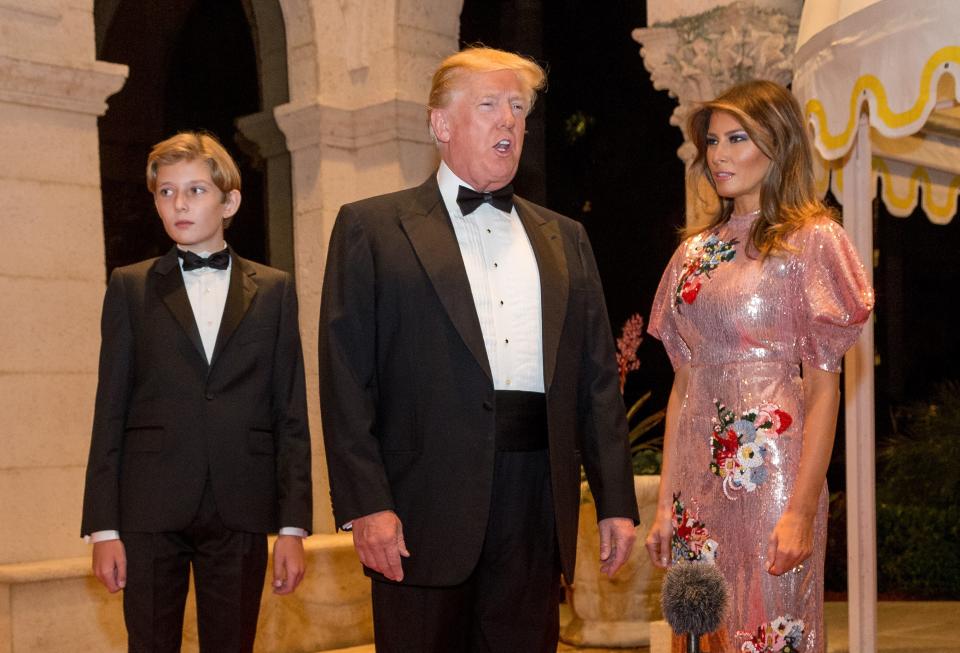
On Saturday, Trump again condemned the action.
"Like all of the other Hoaxes and Scams that they’ve used to try and silence the voice of a vast majority of the American People, I have TRUTH on my side, and when you have TRUTH, you will ultimately be victorious!" he wrote in a statement.
The FBI raid that retrieved untold numbers of top secret documents was stunning and jarring. Even more so was the realization Friday afternoon, when the search warrant itself was made public, that Trump may be under investigation for Espionage Act violations.
Never has a former U.S. president been under criminal investigation. It is a situation of such gravity that, in September 1974, President Gerald Ford committed political suicide by pardoning his predecessor, Richard Nixon — who had resigned in disgrace the previous month — precisely to avoid such an embittering, polarizing and divisive course.

This week's revelations are grave, but they are far from the only time Trump, either as president or as ex-commander in chief, has been alerted, warned or cautioned about his handling of documents at Mar-a-Lago.
Historians, national security analysts and government watchdogs say Trump seemed oblivious, if not dismissive, when called upon to follow the law and norms.
"It's just been a security situation from the beginning," said Robert Watson, a presidential historian at Lynn University in Boca Raton. "It appears [Trump] not only has not been cognizant of this but has been defiant, openly, and just not making the kind of effort which one would expect of a public figure."
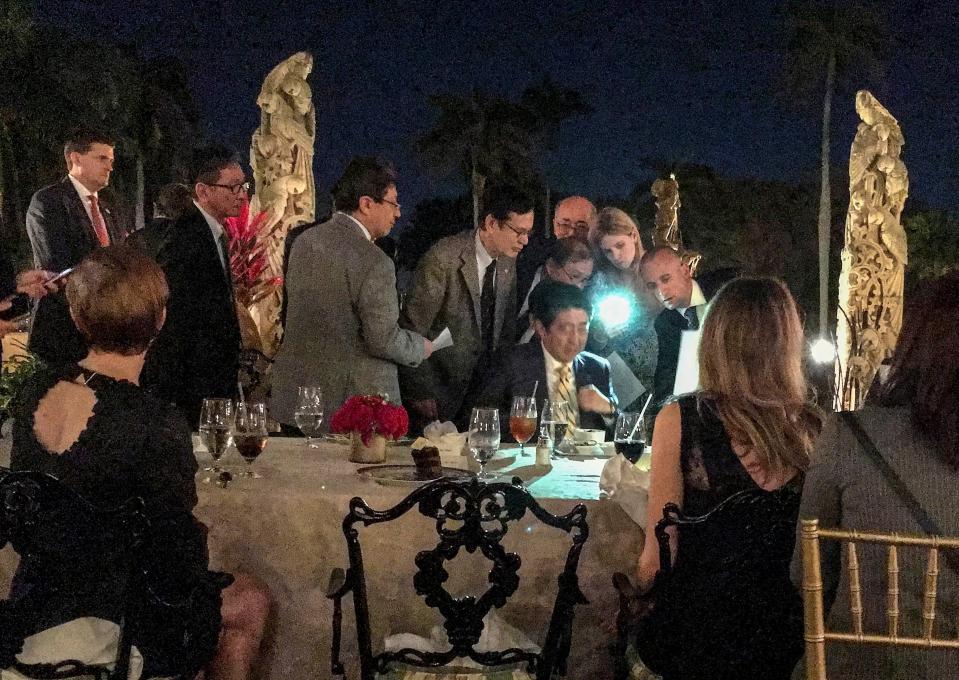
A 'Situation Room' in Mar-a-Lago dining room after North Korean missile
The uniqueness of the Trump presidency in Palm Beach was on full display in mid-February 2017, barely a month after Trump's inauguration.
On his second presidential weekend trip to Mar-a-Lago, Trump hosted then-Japanese Prime Minister Shinzo Abe for a summit. When news broke of a provocative North Korea missile test, Trump and Abe, who were dining together in a Mar-a-Lago hall, huddled Situation Room-style to fashion a response – as club members and guests granted a front row seat to high-stakes foreign diplomacy looked on.
The scene raised eyebrows among national security watchers.
Remembering Shinzo Abe: Ex-Japanese Prime Minister Shinzo Abe: He met twice with then-President Trump at Mar-a-Lago
In retrospect, Robert Lloyd, executive director for the LeMieux Center for Public Policy at Palm Beach Atlantic University, said the episode spoke most of all to Trump's unfamiliarity with government norms. Unlike, say, George H.W. Bush, who served as CIA director, Trump was a business executive "still fairly new to the presidency," with no prior public sector experience, Lloyd said.
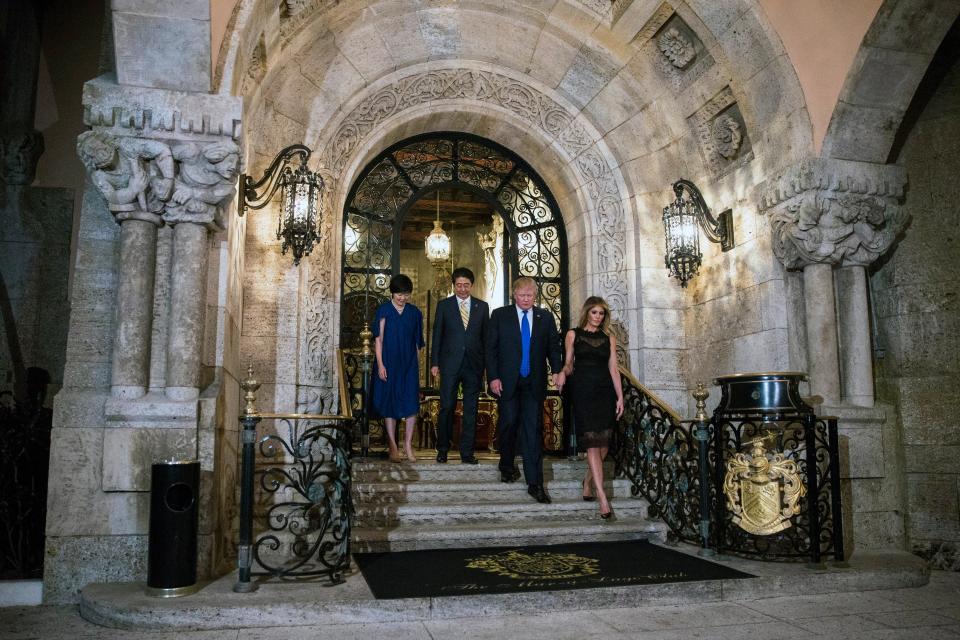
"President Trump came in without the traditional background that politicians have, particularly in matters at the executive level in dealing with sensitive international domestic issues," Lloyd said. "Trump was on a pretty steep learning curve, when he came to office, on that."
Lloyd recommends that people following news of the FBI action "draw a distinction" between actions and motives.
One thing is a mistake owing to bad judgment, he said. Another is an error that resulted from willful action despite prior warnings. And both are different than an act that is criminal in nature, he said.
"There are various levels here to consider," he said.

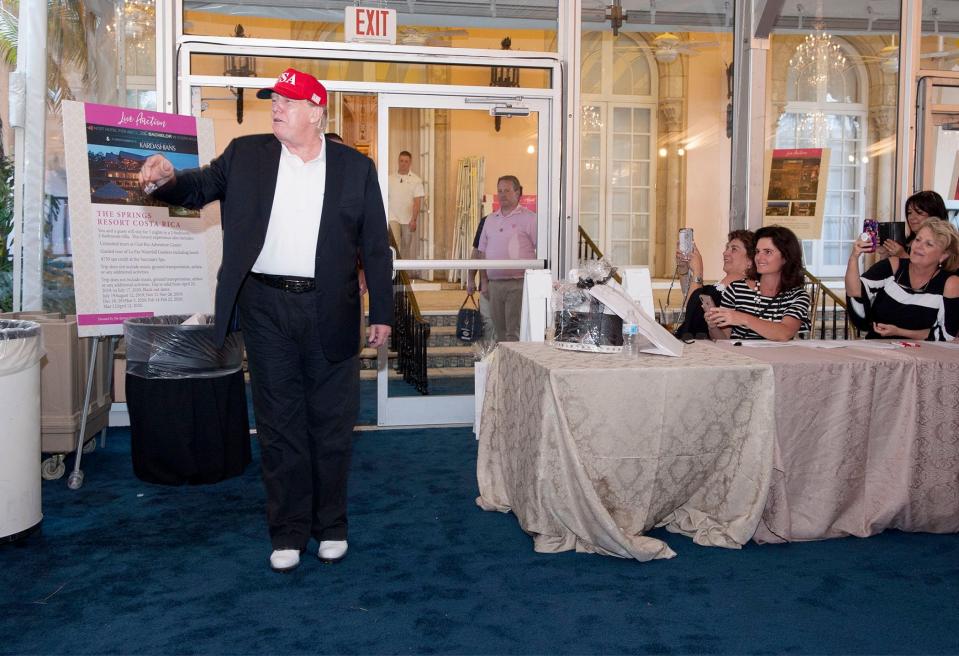
Torn papers: Origin of Trump-documents saga dates back to 2018
In 2018, another alleged breach of presidential conventions surfaced. Namely, Trump was said to habitually tear up papers and documents, in violation of the Presidential Records Act – actions the former president has vociferously denied.
The post-Watergate law states that all presidential materials – White House documents, memos, letters, notes and emails – become public property and must be turned over to the U.S. National Archives and Records Administration when a presidency ends.
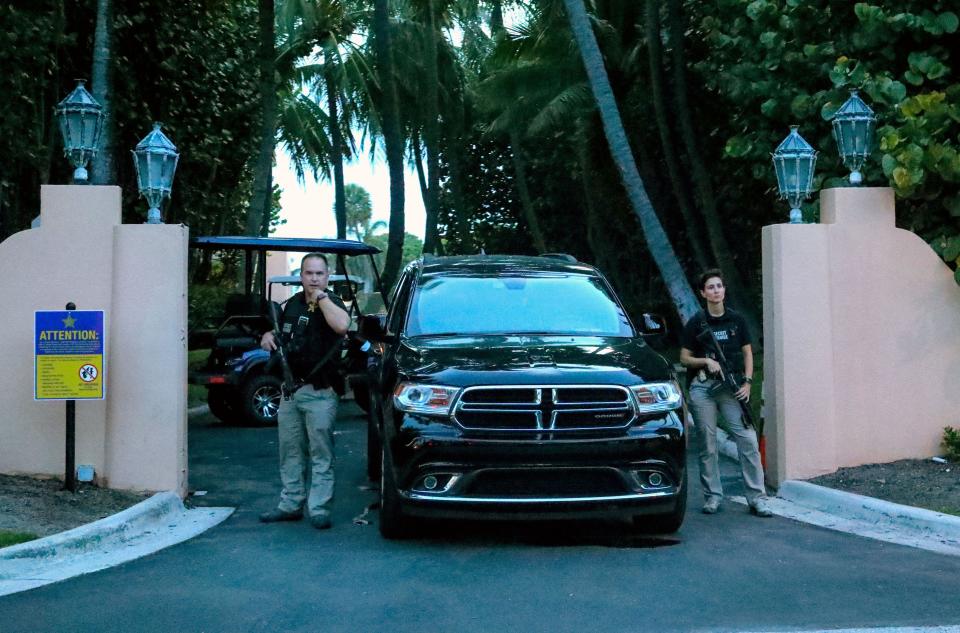
The scrutiny of Trump's adherence to the records law continued after his term ended in January 2021 when it was revealed this past February that he kept presidential materials at Mar-a-Lago. Officials at the nonpartisan watchdog Citizens for Responsibility and Ethics in Washington (CREW) blasted what they said was an unlawful effort "to deny the American people a full historical record of his presidency."
On Friday, CREW's Jordan Libowitz said the retrieval of secret documents in the Mar-a-Lago search exceeded CREW's initial concerns.
"This isn't a we-told-you-so kind of thing," he said. "This is more a 'this-is-our-worst-fears' kind of thing."
Libowitz said it is important that all presidential documents and papers are given to the Archives to preserve as complete a record of a presidency as possible and to keep national secrets in secure hands.
Trump presidential library: Talk of a Donald Trump presidential library has some open records watchdogs wary
Libowitz cautions that much is as yet unknown about the papers and records kept at Mar-a-Lago. And he warns against speculation that "gets ahead" of the Justice Department investigation and "which would be unfair to both the department and, frankly, former President Trump."
But the fact that the documents were there at all is "a whole bigger problem," he said. "It raises a significant question about what Trump was doing with those records."
Libowitz also adds that CREW unsuccessfully sought to get lists of visitors to Mar-a-Lago during Trump's presidency.
"Eventually we were told the Secret Service wasn't even vetting people so they did not know if there were foreign delegations getting access to materials there," he said. "It was all up to Trump's business. So we now have a situation in which it looks like a former president took highly sensitive, top secret documents to his private business and we don't know who has had access to them."
The New York Times reported Saturday that at least one lawyer for Trump signed a written statement in June asserting that all material marked as classified and held in boxes in a storage area at Mar-a-Lago had been returned to the government.
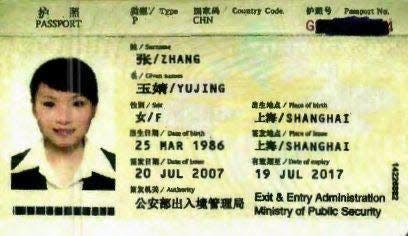
Security worries led to arrest, one incident of gunfire outside Mar-a-Lago
In March 2019, a Chinese national named Yujing Zhang was accused of trespassing after trying to get into a Mar-a-Lago event.
Investigators found she was carrying four cellphones, a laptop and an external hard drive. In her room at The Colony Hotel on Palm Beach, they found USB drives, SIM cards and a device to detect hidden cameras.
Zhang insisted she was innocent and represented herself in jury a trial in which she was found guilty on two counts related to lying to a federal agent and gaining access to a restricted building. She received an eight-month sentence and faced deportation. To this day, why she was there and why she had all that equipment remains a mystery.
More: Mar-a-Lago interloper sits in ICE center 18 months after sentence over

Another Mar-a-Lago interloper was college freshman Mark Lindblom. On the day after Thanksgiving in 2018, Lindblom, 18 at the time and dressed in a blue suit, hoodwinked Secret Service agents in talking his way into Mar-a-Lago simply "to see how far I could get," he told a federal court in May 2019. Trump and his family were staying at Mar-a-Lago at the time, as the former president normally did on holidays during Palm Beach's social season.
In case you missed it: College freshman slipped into Mar-a-Lago while Trump was in town
Lindblom accessed Trump's property by walking through a tunnel under State Road A1A that connects Mar-a-Lago to the beach club facility. He stood in line with other members, and was "wanded" – checked by agents with a hand-held device to detect weapons.
Once allowed onto the property, Lindblom snapped photos and wandered around for 20 minutes before being detected, stopped and arrested. He received a year's worth of probation.
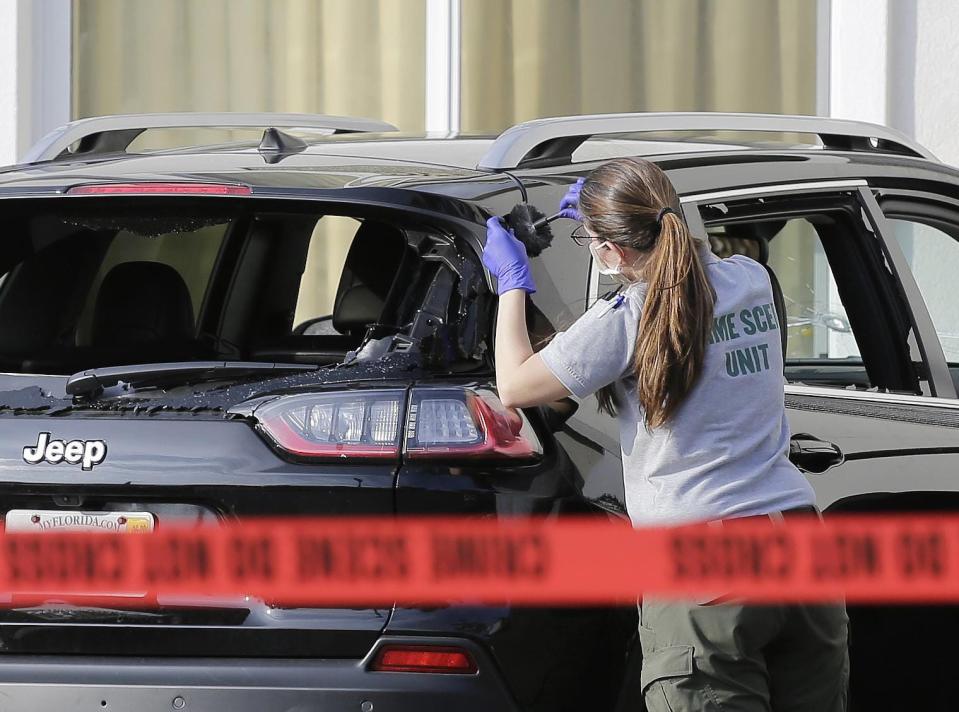
In January 2020, an SUV driven by a Connecticut woman cruised through two security barricades by Mar-a-Lago, and prompted gunfire from Secret Service agents and Palm Beach County sheriff’s deputies. No one was injured. A judge later found the driver, Hannah Roemhild, an opera singer, not guilty of multiple charges by reason of insanity.
Historian Watson points out that preventing such incidents is precisely why Camp David, previously called Camp Shangri-La during the FDR years, exists. Trump rarely visited the retreat in Maryland, once calling it "rustic."
But, Watson said, it is "a secure, private retreat that can be locked down easily."
More from Mar-a-Lago: Woman who drove past Secret Service barricades at Mar-a-Lago found not guilty by reason of insanity
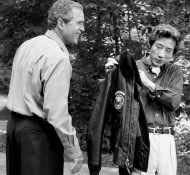
True, other presidents went elsewhere. Harry Truman spent time at a home in Key West, but that was on a barricaded U.S. Navy base, Watson noted. George W. Bush retreated to his ranch in Texas, he said, but although a private residence, it was isolated and relatively easy to secure.
Before Trump, John F. Kennedy, whose family had an estate on Palm Beach, visited frequently. Aware of the security risk, at the height of the Cold War, a secret bunker was created on Peanut Island off West Palm Beach in the event JFK needed extreme protection.
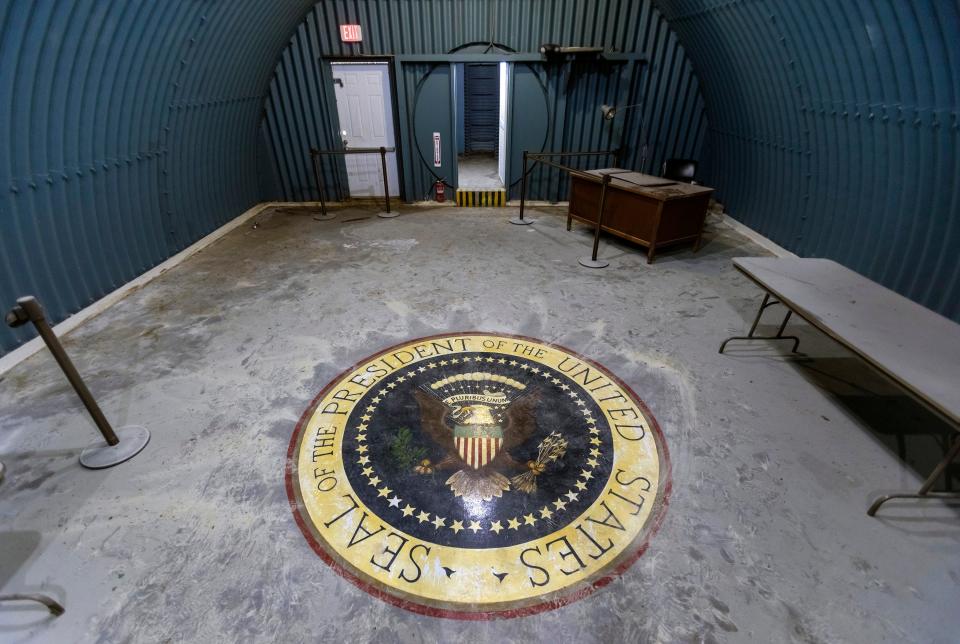
Concentric circles of risk at Mar-a-Lago extended beyond the private club
A security professional points out the series of concentric circle security risks for a high-profile figure in a location that has public access and is in a densely populated urban location.
"When you have a location like the White House or the Texas ranch, 99% of the people that are coming in and out are known, fully vetted individuals, depending on their clearances and access," said Ross Thompson, a longtime hand in private security who is now CEO of COVAC Global in West Palm Beach.
Mar-a-Lago is a private club with potentially hundreds of guests and staff present throughout much of a 24-hour day during the Palm Beach social season that runs from late October through mid-May. Thompson said that reality makes the vetting challenge much harder.
The difficulty includes background checking all employees, from kitchen staff to landscapers, and perhaps even their families, for red flags. Mar-a-Lago's employee ranks would also include workers on foreign visas, and have to take into account the turnover that is typical in a leisure and hospitality enterprise.

Then there is the roster of members, and those members' guests, be it spouses, children, friends and business associates. All of which, he said, points to a much higher volume of background checking than in a secured, government facility or secluded private residence.
"Mistakes can happen," he said. "The more people you are going to have coming in and out, the more chances you are going to miss something. Things can slip through cracks."
Those hurdles are way more surmountable than the challenges presented in the event a threat or emergency emerges, Thompson added.
Typically, Thompson said, in a secure location a manageable number of attendees are briefed on exit strategies, if not in fact trained on how to behave and act in such a moment.
At Mar-a-Lago, the frequency of events — weddings, philanthropic galas and political fundraisers — while Trump was president brought in crowds that may not have been instructed on what to do. From a security standpoint, Thompson said, he would worry about the ensuing pandemonium, which could complicate efforts to get the president, his family and staff to safety.
That would include the possibility of onlookers and passersby outside the walled Mar-a-Lago premises stopping to witness the scene, potentially blocking the narrow road out from the estate.
"You have all those issues that are starting to compile pretty quickly once you start on your evacuations," he said. "And you are going to have a lot of these things now mixing with people and staff that aren't trained on how to handle emergency situations, or haven't been briefed on how to behave in emergency situations, so they can clear the way for the president."
Antonio Fins is a politics and business editor at the Palm Beach Daily News, part of the USA TODAY Florida Network. You can reach him at afins@pbpost.com. Help support our journalism. Subscribe today.
This article originally appeared on Palm Beach Post: Mar-a-Lago presented national security risks even before FBI search.

